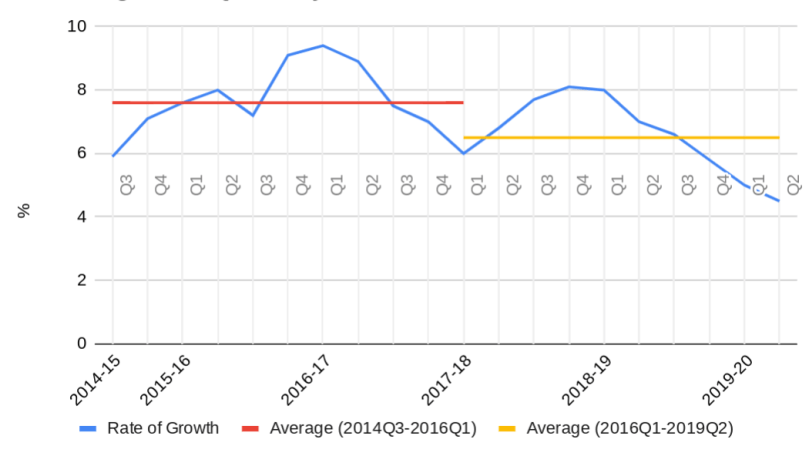India’s Finance Minister Nirmala Sitharaman has said, while replying to a discussion on the economic slowdown in the Rajya Sabha, ‘growth may have come down, but it is not a recession yet and it won’t be a recession ever’. Drawing on data up until December 2019, I evaluate to what extent India’s economy is indeed slowing down.
Figure 1: Quarterly Rate of Growth of GDP in India
No, it’s not a recession, defined strictly in technical terms, i.e. on the whole, the level of activity hasn’t fallen, even though certain crucial sectors, like automobiles, are seeing a fall. What we have instead is a slow down, a severe one at that, with falling rate of growth of GDP for five straight quarters (figure 1). The Indian government is hiding behind economic jargon to obfuscate the reality that is biting the economy. The writing is on the wall. The Indian economy is facing a severe crisis and the sooner we come to terms with it, the better. Based on a recent paper in Economic and Political Weekly, this blog discusses the changing growth levels in the Indian economy, the reasons for the recent slowdown, and some possible short and long term solutions.Read More »
